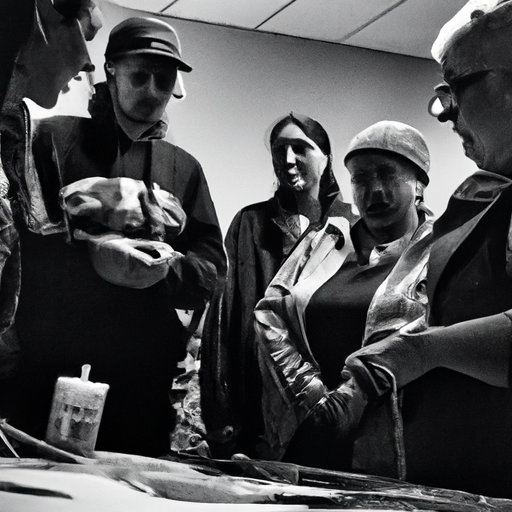An In-depth Look at the Canadian Opioid Crisis: The Perspective of Sask First Nation
In our ongoing efforts to shed light on the devastating Canadian opioid crisis, we recently came across an article published by CTV News, Saskatoon. The urgency and depth of the narrative struck a chord on an issue that’s escalating nationwide—specifically through the lens of the First Nations community.
The Opioid Crisis and Its Far-Reaching Effects
The opioid epidemic is not isolated, rather a part of a larger framework of public health concerns. Mental health issues, unemployment, homelessness, and increased crime rates are synonymous repercussions intertwined within the opioid crisis. By studying the ripple effects, we can begin to understand the systemic issues contributing to the crisis and work towards plausible solutions.
At the heart of the issue, in the First Nations communities, the opioid crisis has triggered a mental health and addiction crisis. The Cree Nation of Chakastapaysin, in Saskatchewan, serves as a poignant example. The community is pleading for support, facing the devastating reality of drug addiction and its consequences. In their call to action, they specify the need for mental health support—a clear testament to the cascading impacts of opioid misuse.
Addressing the Crisis: Steps Taken thus Far
While the situation is dire, it’s important to recognize several measures already in place to combat the opioid crisis. Here are some key points thus far:
- The widespread availability and use of Naloxone, a life-saving drug that can reverse the effects of an opioid overdose, have made significant strides in preventing fatal overdoses.
- The Canadian government has taken legislative action to make it easier for communities to open safe injection sites, reducing the risk of overdoses and transmission of diseases.
- The National Housing Strategy aims to reduce homelessness, an issue closely linked with the opioid crisis.
- Similarly, a variety of initiatives target reducing opioid prescriptions, promoting safer prescribing practices, and educating patients and healthcare providers about the risks of opioid misuse.
- A nationwide opioid class action lawsuit has been launched to hold pharmaceutical companies accountable for their role in the opioid crisis.
Looking Ahead: More Needs to be Done
Yet, despite these efforts, many communities, such as the First Nations, are still struggling. Their call for mental health support highlights a crucial gap in our current response. While Naloxone and safe injection sites help manage the immediate risk of overdose, they do not address the underlying issues driving addiction. As the First Nations community highlights, addressing mental health is an integral part of addressing the opioid crisis.
Additionally, the opioid class action lawsuit is a step in the right direction, holding those responsible accountable. However, it does not provide immediate or direct support to those impacted now. Direct investment in communities, particularly those disproportionately affected like the First Nations, is critical.
In conclusion, while strides have been taken to address the opioid crisis in Canada, from increasing Naloxone availability to launching an opioid class action lawsuit, the call for help from the First Nations community reminds us of the considerable work still needed. Beyond managing the symptoms of the opioid crisis, we must address the underpinning causes—mental health issues, unemployment, homelessness, and crime. Only when these systemic issues are addressed can we hope to see a significant shift in overcoming the opioid crisis.
